Understanding the METAVERSE: A Beginner's Guide for 2022
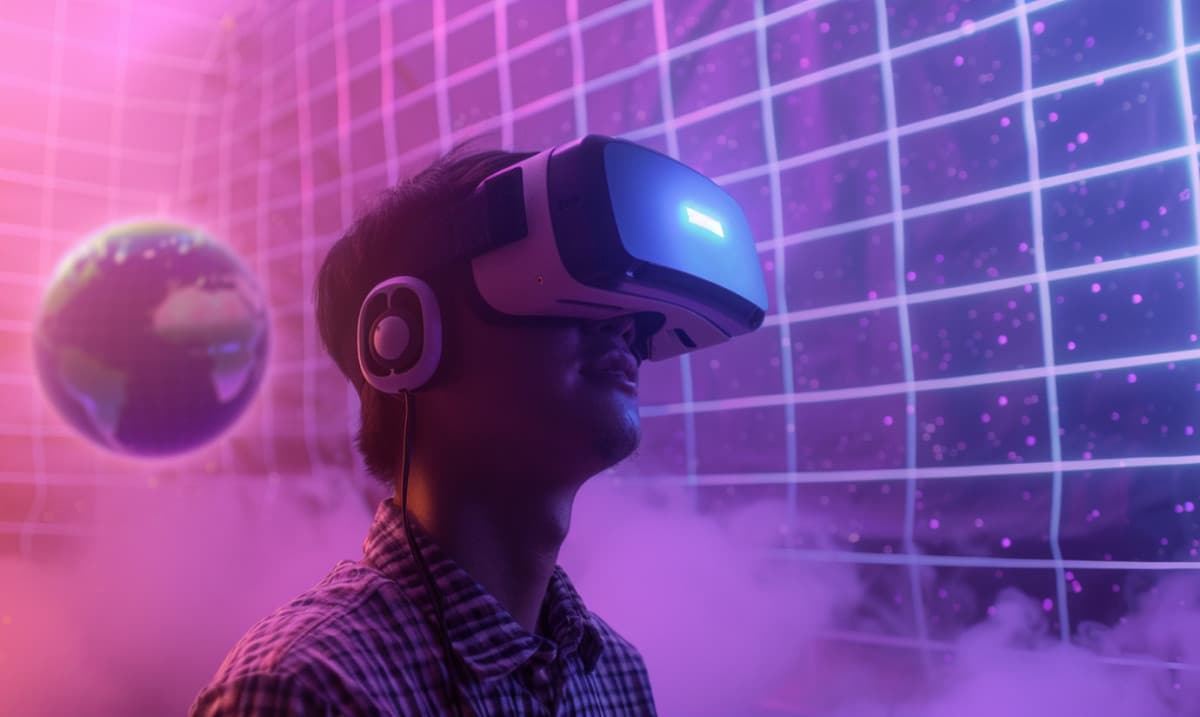
Table of contents
What is a Metaverse?
This trendy term has everyone buzzing with curiosity about what it truly signifies and its possible future. Is it a leap forward? Is it secure for us and generations to come? How can one get involved? The list of questions surrounding the 'Metaverse' and its potential applications is extensive. It’s a captivating blend of inspiration, excitement, and a hint of apprehension. Let’s delve into the story and technology that form the foundation of the Metaverse.
The notion of the Metaverse has ignited imaginations since the 90s. Cyberpunk authors from both Russia and the United States depicted digital realms where individuals could interact, play, explore, dine, socialize, and even rest — all in a virtual setting, far removed from our tangible existence.
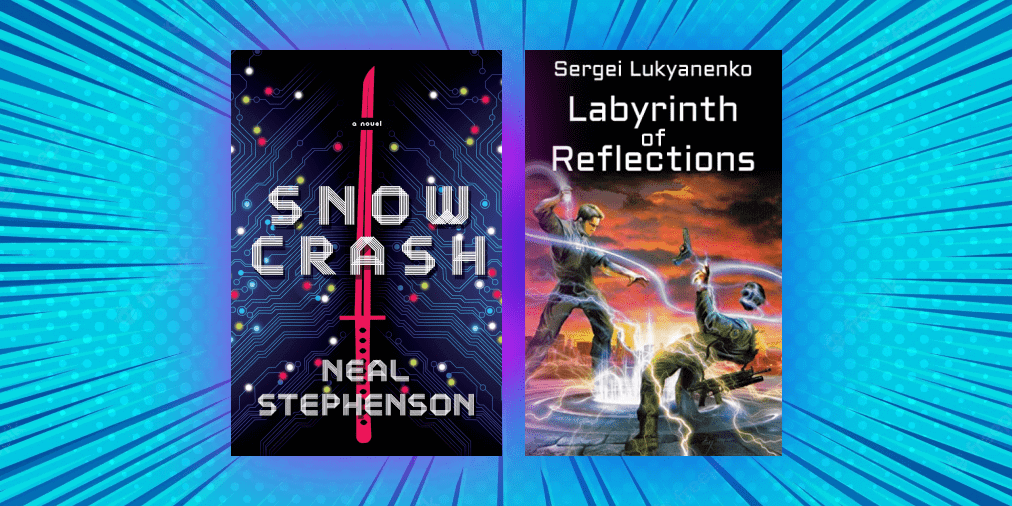
In 2003, the advent of Second Life introduced users to a multimedia platform that made it possible to create avatars and engage in a dynamic online universe. Following this, Roblox came onto the scene in 2004, paving the way for a plethora of online gaming experiences.
What does Metaverse stand for?
While it might seem simplistic to define the Metaverse merely as an online gaming space, its scope encompasses much more than that.
Currently, there isn't a universally accepted definition of the 'Metaverse.' However, an array of components is likely to characterize this novel ecosystem:
- A collaborative virtual environment that individuals can access online;
- Sensory devices for Virtual Reality or Augmented Reality, including headsets, smartphones, computers, gaming consoles, and smart glasses;
- Transactions involving digital currencies, which can involve traditional money as well as cryptocurrencies;
- Software capable of converting objects into 3D formats.
Though many of the technologies that will underpin future 'Metaverses' are still in development, significant global players are actively adopting these innovations daily, signaling an inevitable transition to a new internet paradigm. The frequency of the term 'Metaverse' mentioned in company filings in the U.S. surged from just once in January 2021 to a staggering 100 times by January 2022.

The buzz peaked in October 2021 when Mark Zuckerberg rebranded Facebook as Meta.
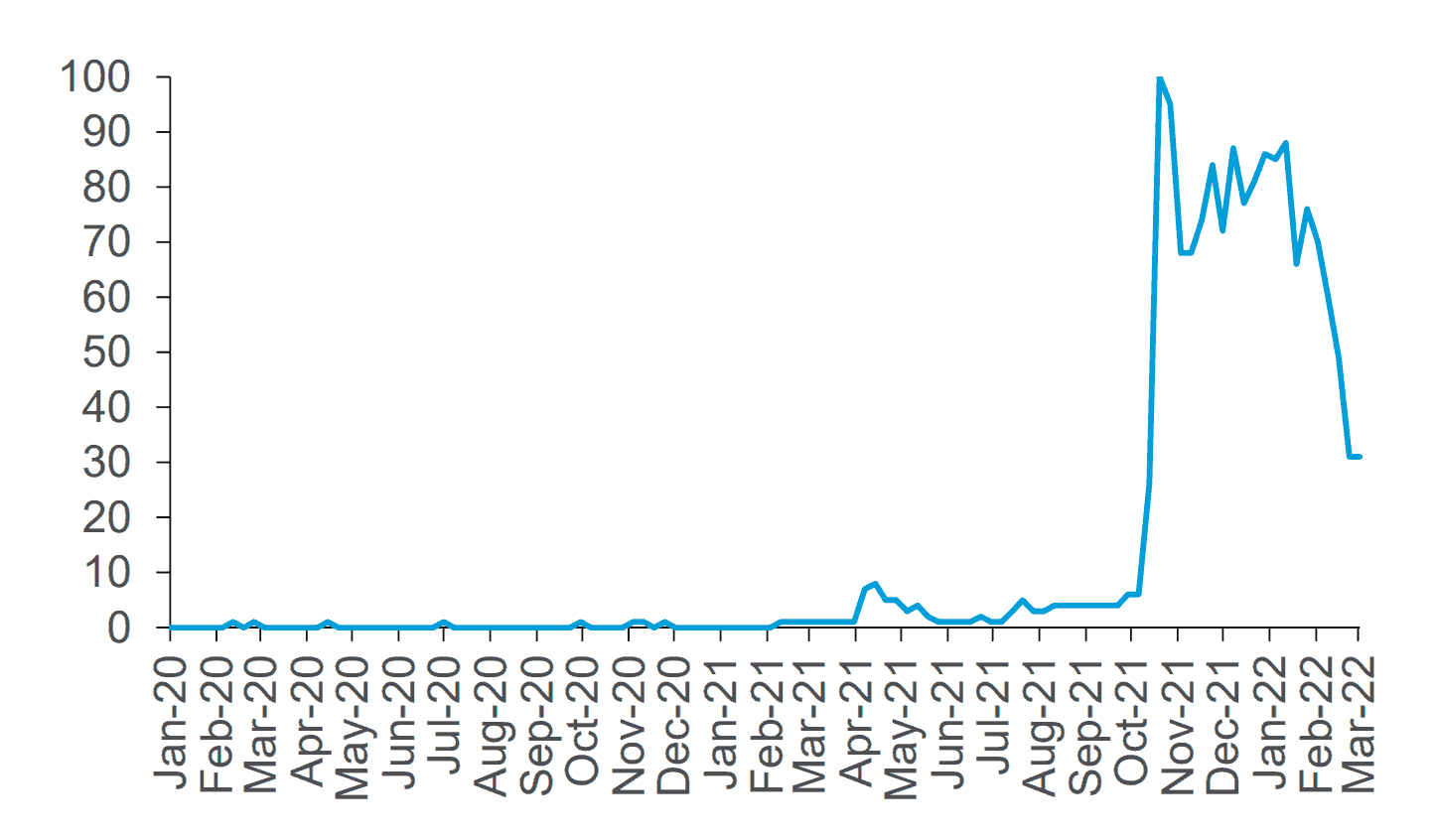
Interest surged with the rise of NFTs, which saw an influx of endorsements and purchases from celebrities like actors, athletes, and musicians.
At present, there are about ten categories of non-fungible tokens that find utility within the Metaverse. Items like identity tokens, artistic works, and gaming assets are facilitating the adoption of this technology.
However, the applications of the Metaverse extend beyond just art and gaming.
Let's envision digital entertainment experiences such as concerts, fashion events, sporting activities, tourism initiatives, exhibitions, and more. It’s easy to imagine these scenarios, especially since we’ve already observed various events hosted across different Metaverses.
Take, for example, the memorable virtual concert by Travis Scott held in Fortnite during 2020.

Decentraland's digital fashion week brought a spotlight to the convergence of virtual and physical fashion.
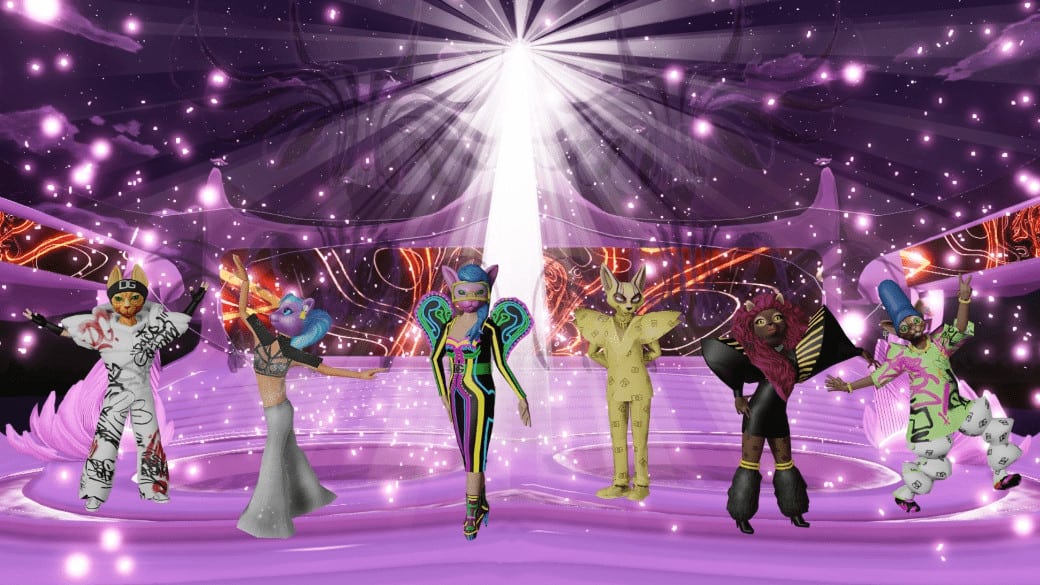
Disney is exploring the possibility of creating a theme park within the Metaverse and has already filed a patent for a “virtual world simulator in an actual location.”
In addition to acting as sponsors during competitions, major sports clubs are also leveraging the Metaverse and NFTs to draw in fans.
Virtual advertising has gained ground, starting with the rise of digital personalities like Lil Miquela in 2016, followed by the establishment of the first digital modeling agency by Cameron-James Wilson in 2017.
Today, brands collaborate with platforms to offer users the opportunity to create unique virtual avatars—an example being the partnership between ZEPETO and Gucci.
Prominent brands such as Nike, Adidas, Vans, and Burberry have embraced technology that allows for engaging experiences in social and e-commerce, complete with virtual shopping malls and digital merchandise.

Nike's launch of a flagship 'Metaverse' store aimed to provide deep interactive experiences: 'Is this it?'

Cities and Public Services in the Metaverse showcase potential for innovative advancements.

The realms of Education, Recruitment, and Training could greatly benefit from immersive experiences offered by the Metaverse. PwC UK is already implementing a Metaverse platform for candidate evaluations, and Seoul is testing science classes in the Metaverse with student engagement.
Education, Recruitment, and Training can thrive in the Metaverse environment. interview job Acknowledgment thanks to the Daegu Metropolitan Office of Education.
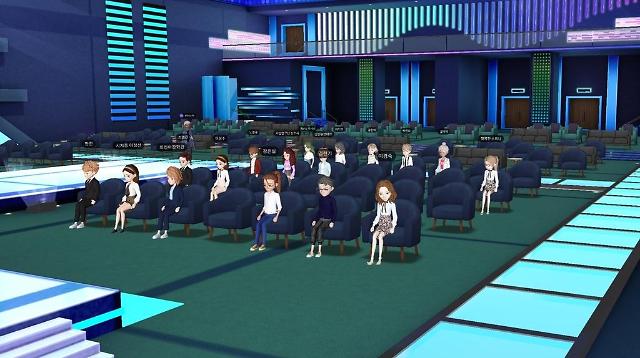
As we move through April 2022, numerous questions remain unanswered in crafting the envisioned 'Metaverses'—the ones we fantasize about from science fiction or our dreams. Following along this path is an exciting adventure.
Virtual reality, marked by enduring digital realms that persist even when not in play, alongside augmented reality, which merges digital elements with the real world, are prime examples of the technology companies reference when discussing the Metaverse.
Anyone can easily access the Metaverse by creating their own avatar on a browser-based 3D platform. One of the most straightforward ways to dive into the Metaverse is by crafting an avatar on the Decentraland website.
FAQs
Instead of a singular 'Metaverse' as we envision today, we currently see numerous proto-metaverses or closed ecosystems. Notable names like Roblox, Epic Games, Nvidia, Microsoft, Decentraland, and Meta are busy forging exclusive, non-interoperable experiences.
The Metaverse is envisioned as a vibrant digital playground where individuals can work, engage, shop, and socialize—not just in the traditional sense but within a fully immersive experience. You would actually be 'inside' the internet rather than just 'on' it.
Businesses are investing in cultivating a Metaverse creator economy, while also fostering an open gaming environment that empowers users to design their uniquely interactive and virtual spaces.
The term 'metaverse' first appeared in Neil Stevenson’s 1982 novel Snow Crash, where characters could escape their grim reality by entering this imaginative digital landscape.
Accessing certain features of the metaverse requires virtual currency, obtainable through real-world currency. The type of virtual currency needed is dictated by which version of the metaverse you inhabit, allowing you to purchase virtual land and other luxuries with digital assets.
SANDBOX stands out as a leading platform in the metaverse landscape.
According to RepublicRealm, which tracks metaverse developments, the average price of virtual land across four major platforms doubled to $12,000 in just six months last year. Just like in the physical world, location heavily influences property values within the metaverse.
Many mistakenly believe Facebook is synonymous with the metaverse, but the reality is far broader. Over 160 companies are involved in the development of the metaverse.
If you picture the metaverse as depicted in Ready Player One, you might assume it to be an internet substitute. However, it's meant to enhance and expand the internet's capabilities, rather than replace it. Accessing the metaverse requires fast internet connectivity.
By offering a three-dimensional landscape, the metaverse aims to be the backdrop for social interactions. This could enable global teams within the same organization to convene in the metaverse for inventive problem-solving sessions.
Decentraland, one of the leading metaverse platforms, presents unique opportunities for learning and engaging with virtual experiences. The Decentraland Marketplace allows users to buy and sell virtual property, in addition to other items like names and avatars.
What exactly is the METAVERSE? A Simplified Guide for 2022 Enthusiasts - Metaverse Post
Many experts view the metaverse as an immersive, three-dimensional representation of the internet—essentially a parallel universe to our own, where people can engage and thrive.
Table of contents: Defining the Metaverse; What the Term 'Metaverse' Means; Frequently Asked Questions: What is a Metaverse? This popular term leaves many wondering what it really entails and what the future holds.
Metaverse Post » Understanding METAVERSE: A Beginner's Guide for 2022 Comments Section
FTC's Attempt to Block Microsoft-Activision Merger Falls Short
Published on: April 16, 2022, at 9:40 am. Updated: April 04, 2024, at 11:58 am.
1. Choose the proper platform.
2. Boost your internet visibility.
3. Target audience in mind.
4. Put experience first.
5. Learn more about cryptocurrency.
To enhance your understanding in your native language, we sometimes use an automatic translation tool. Please be aware that automated translations may not be perfectly accurate, so it's best to proceed with caution.
The term generates curiosity, provoking thoughts about its essence and potential implications for the future. Is it a safe haven for today and generations to come? How can one experience it? Numerous questions linger around the concept of the ‘Metaverse’ and its growing applications. It's a blend of excitement, inspiration, and a hint of apprehension. Let’s take a closer look at the roots and technologies that define the Metaverse.
2. Add augmented reality to the mix.
The idea of the Metaverse has captivated imaginations since the 1990s. Writers from Russia and the United States embraced the cyberpunk genre, vividly portraying digital realms where individuals could connect, enjoy games, journey through landscapes, dine, and even rest—essentially leading lives akin to those in the physical realm but through a virtual lens.
Fast forward to 2003, and Second Life emerged, a multifaceted platform that allowed users to craft avatars and engage in a vivid online environment. Then, in 2004, Roblox debuted, paving the way for a myriad of similar online gaming experiences.
While one might think of the Metaverse simply as an online gaming platform, the reality is that it encompasses much more complexity and depth.
A collective virtual environment that can be accessed via the internet.
Tools for Virtual Reality or Augmented Reality, like headsets, smartphones, PCs, gaming consoles, and AR glasses.
Software capable of rendering objects in three-dimensional space.
Most of the technological foundations that will underpin various incarnations of the Metaverse are still in development. Nonetheless, significant players in the industry are embracing these technologies daily, making it seem increasingly likely that a new form of internet is on the horizon. Just last year, mentions of 'Metaverse' in the filings of US companies spiked dramatically from a mere single reference in January 2021 to an astonishing 100 by January 2022.
Interest in the term reached new heights in October 2021, following Mark Zuckerberg's rebranding of Facebook to Meta.
Currently, there are around ten different kinds of Non-fungible tokens that could play a role in the Metaverse, facilitating technological adoption for individuals and corporations alike—including identity tokens, access tokens, artistic content, and gaming assets.
Consider digital entertainment ventures like concerts, fashion shows, sports gatherings, tourism, and museums, among others. Imagining such uses is quite feasible since we've already experienced numerous events conducted across various Metaverse platforms.
In 2020, Travis Scott held a concert in the virtual game Fortnite.
Decentraland hosted a digital fashion week in March 2022 to showcase the advent of fashion brands entering the digital retail landscape.
Disclaimer
In line with the Trust Project guidelines Digital advertising is becoming increasingly prevalent. This trend began with the rise of the first digital model, Lil Miquela, in 2016, and continued with the establishment of the first digital modeling agency by Cameron-James Wilson in 2017.




